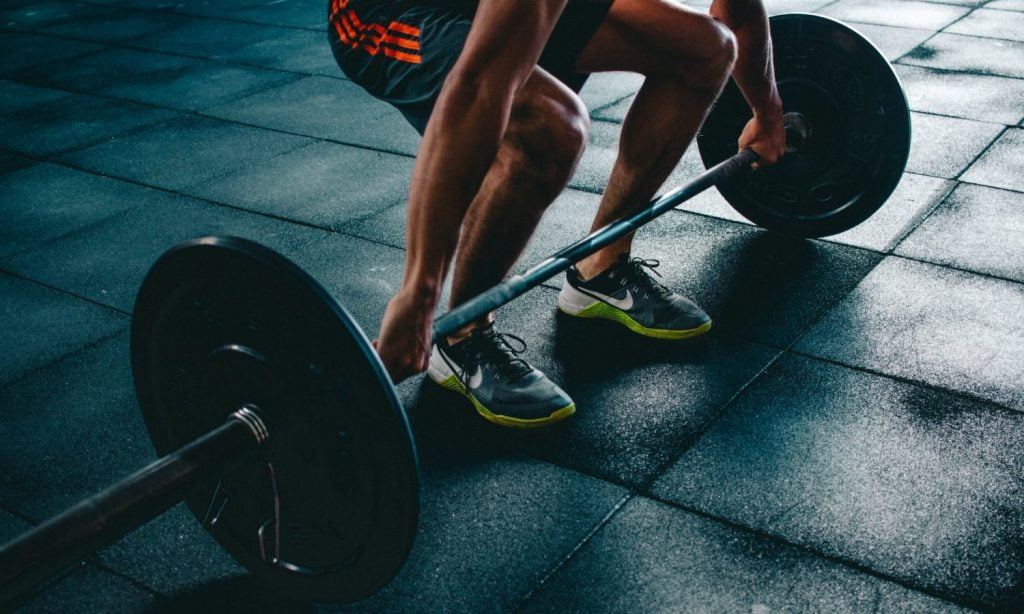Healthcare
4 Benefits Of Incorporating Cannabis Into Your Fitness Routine

While there’s still a lot to learn about how cannabis works, it may help in improving your workout performance, and may have the potential to help you achieve your fitness goals.
With some states legalizing the use of cannabis, the social stigma on the subject may start to loosen up. Today, cannabis seems to have become more popular and accessible to people. In fact, there are fitness gurus and athletes who even start to speak of its benefits.
Nowadays, some fitness enthusiasts incorporate cannabis before or after their workout routine and believe working out while high is beneficial. Aside from that, cannabis is believed to improve overall fitness, too.
To put your mind at ease, here are some claimed health benefits of cannabis, as well as how it’s supposed to level up your fitness game.

Minimizing Inflammation And Pain
One of the most promising areas of cannabis research is its capacity to reduce joint and muscle inflammation. Studies have tried to prove that the nonpsychoactive cannabinoid in cannabis, cannabidiol (CBD), could help in reducing inflammation.
Related to its anti-inflammatory properties, cannabis is also known to relieve body pains and soreness derived from working out too much. CBD may reduce pain by influencing endocannabinoid receptor activity, interacting with neurotransmitters in the nervous system, and reducing inflammation. It’s said to be effective in lessening acute pain, pain caused by twisted muscles, and chronic pain.
This could be beneficial for athletes and fitness enthusiasts dealing with inflammation and pain in the muscles and connective tissue. It could also be helpful for those recovering from surgery or past injury.
This is perhaps the primary area of cannabis research that seems to have shown positive results. It may be good news for fitness enthusiasts looking for alternatives to opiates.
Improving Sleep
Sleep is critical to overall fitness as it gives the body enough time to recover and repair damaged muscles after exercise. This is because it’s also the only time when the body produces growth hormones, which are necessary for recovery.
Unfortunately, many people are sleep-deprived. That is, they don’t get the recommended seven to eight hours of sleep every night. When this happens, it could mean sabotaging their own fitness goals.
However, cannabis may be able to help in this area as it’s believed to aid in inducing sleep. It’s said to help restore the natural sleep cycle, which usually falls out of sync because of the daily schedules and stressors of modern life. Because of its claimed antianxiety properties, cannabis could also help soothe a stressed mind and body. And if you find it hard to get a good shut-eye at night due to chronic pain, cannabis may help in its relief.
Cannabis is also believed to help people suffering from sleep apnea. It’s said to suppress dreams by reducing the amount of rapid eye movement (REM) sleep you get. This could be beneficial for those with posttraumatic stress disorders since it could mean fewer nightmares.

Boosting Energy And Mental Acuity
Numerous factors could affect your energy levels and concentration, including chronic pain conditions, too much stress, lack of sleep, and even diet. And lack of energy and focus could prevent you from attaining your fitness goals. For instance, you may find it hard to finish a half-hour workout routine if you feel tired and lethargic.
Fortunately, cannabis could help with this, and it’s easy to find the best strains for energy and mental boost. Cannabis is said to directly improve energy and promote wakefulness in people. It’s believed to activate the neurons in specific areas of the brain responsible for activity and alertness.
Besides that, cannabis is also claimed to indirectly boost energy by improving other issues. For one, it could help in getting enough sleep. Also, it’s said to be great at reducing stress and anxiety symptoms, plus it could reduce pain, which may cause you to experience fatigue and lethargy.
The popular belief is cannabis hampers brain functioning. However, this may not always be so. As some studies have shown, low doses of tetrahydrocannabinol (THC), the psychoactive component in cannabis, could restore cognitive functioning in mice.
By helping improve mental acuity, cannabis could help fitness enthusiasts get in the ‘zone’ with their fitness routines. It could help their mental game while boosting focus by reducing anxiety and keeping them calm and relaxed.
Assisting In Weight Loss
Another area in which cannabis is said to improve overall fitness is assisting in weight loss. There are claims that cannabis could help in losing weight. For one, it’s believed to help in reducing appetite.
The general belief is cannabis stimulates appetite since marijuana users are said to feel hungry after smoking. However, this may only be half true. While THC in cannabis could cause hunger, CBD is said to do the opposite. In fact, a study revealed that CBD is a CB1 receptor antagonist, which means it could deactivate or block off the receptor. This could help in reducing appetite and controlling hunger pangs.

Moreover, cannabis is said to turn bad (white) fat into good (brown) fat. While white fat is responsible for increased risks of chronic conditions like diabetes, brown fat, a metabolically active form of fat, could burn off energy and generate heat. This means it could burn calories.
CBD may play several roles in how the body interacts with these fats. Not only could CBD help in the conversion of harmful white fat cells into brown fat cells, but it could also stimulate the body to efficiently break down these fats. For this reason, CBD may be a promising therapy for obesity prevention, though this claim still needs more clinical and human studies.
Lastly, cannabis is believed to reduce the risk of metabolic disorders causing weight gain. The overactivation of CB1 receptors may be partly responsible for increasing fat tissue throughout the body and contributing to obesity and other metabolic risks. As mentioned, cannabis is supposed to deactivate these receptors, which could help in reducing the risks of obesity, diabetes, and high cholesterol levels.
Conclusion
While there’s still a lot to learn about how cannabis works, it may help in improving your workout performance, and may have the potential to help you achieve your fitness goals.
Source: https://thefreshtoast.com/cannabis/4-benefits-of-incorporating-cannabis-into-your-fitness-routine/
Business
New Mexico cannabis operator fined, loses license for alleged BioTrack fraud

New Mexico regulators fined a cannabis operator nearly $300,000 and revoked its license after the company allegedly created fake reports in the state’s traceability software.
The New Mexico Cannabis Control Division (CCD) accused marijuana manufacturer and retailer Golden Roots of 11 violations, according to Albuquerque Business First.
Golden Roots operates the The Cannabis Revolution Dispensary.
The majority of the violations are related to the Albuquerque company’s improper use of BioTrack, which has been New Mexico’s track-and-trace vendor since 2015.
The CCD alleges Golden Roots reported marijuana production only two months after it had received its vertically integrated license, according to Albuquerque Business First.
Because cannabis takes longer than two months to be cultivated, the CCD was suspicious of the report.
After inspecting the company’s premises, the CCD alleged Golden Roots reported cultivation, transportation and sales in BioTrack but wasn’t able to provide officers who inspected the site evidence that the operator was cultivating cannabis.
In April, the CCD revoked Golden Roots’ license and issued a $10,000 fine, according to the news outlet.
The company requested a hearing, which the regulator scheduled for Sept. 1.
At the hearing, the CCD testified that the company’s dried-cannabis weights in BioTrack were suspicious because they didn’t seem to accurately reflect how much weight marijuana loses as it dries.
Company employees also poorly accounted for why they were making adjustments in the system of up to 24 pounds of cannabis, making comments such as “bad” or “mistake” in the software, Albuquerque Business First reported.
Golden Roots was fined $298,972.05 – the amount regulators allege the company made selling products that weren’t properly accounted for in BioTrack.
The CCD has been cracking down on cannabis operators accused of selling products procured from out-of-state or not grown legally:
- Regulators alleged in August that Albuquerque dispensary Sawmill Sweet Leaf sold out-of-state products and didn’t have a license for extraction.
- Paradise Exotics Distro lost its license in July after regulators alleged the company sold products made in California.
Golden Roots was the first alleged rulebreaker in New Mexico to be asked to pay a large fine.
Source: https://mjbizdaily.com/new-mexico-cannabis-operator-fined-loses-license-for-alleged-biotrack-fraud/
Business
Alabama to make another attempt Dec. 1 to award medical cannabis licenses

Alabama regulators are targeting Dec. 1 to award the first batch of medical cannabis business licenses after the agency’s first two attempts were scrapped because of scoring errors and litigation.
The first licenses will be awarded to individual cultivators, delivery providers, processors, dispensaries and state testing labs, according to the Alabama Medical Cannabis Commission (AMCC).
Then, on Dec. 12, the AMCC will award licenses for vertically integrated operations, a designation set primarily for multistate operators.
Licenses are expected to be handed out 28 days after they have been awarded, so MMJ production could begin in early January, according to the Alabama Daily News.
That means MMJ products could be available for patients around early March, an AMCC spokesperson told the media outlet.
Regulators initially awarded 21 business licenses in June, only to void them after applicants alleged inconsistencies with how the applications were scored.
Then, in August, the state awarded 24 different licenses – 19 went to June recipients – only to reverse themselves again and scratch those licenses after spurned applicants filed lawsuits.
A state judge dismissed a lawsuit filed by Chicago-based MSO Verano Holdings Corp., but another lawsuit is pending.
Source: https://mjbizdaily.com/alabama-plans-to-award-medical-cannabis-licenses-dec-1/
Business
Pot Odor Does Not Justify Probable Cause for Vehicle Searches, Minnesota Court Affirms

The Minnesota Supreme Court affirmed that cannabis odor does not constitute probable cause to search a vehicle.
If Minnesota police search a vehicle solely based upon the smell of pot, they can’t justify searching a vehicle, even if there is evidence found of other alleged crimes. Even after appealing a lower court decision to suppress the evidence—twice—the Minnesota Supreme Court agreed, and the dismissal of his charges stands.
In a ruling filed regarding a case the State of Minnesota Court of Appeals on Sept. 13, the Minnesota Supreme Court affirmed that cannabis odor does not constitute probable cause to search a vehicle.
The case has been ongoing for two years. On July 5, 2021, just before 10 p.m., a Litchfield police officer stopped a car for an obscure local law: the light bar mounted on the vehicle’s grill had more auxiliary driving lights than are permitted under Minnesota law. The officer asked the driver, Adam Lloyd Torgerson, for his license and registration. Torgerson, his wife, and his child were present in the vehicle. The officer stated that he smelled pot and asked Torgerson if there was any reason for the odor, which he initially denied. But cops found a lot more than just pot.
A backup officer was called in. The couple denied possessing any pot, but Torgerson admitted to smoking weed in the past. The second officer stated that the weed odor gave them probable cause to search the vehicle and ordered them to exit the vehicle. The first officer searched the vehicle and found a film canister, three pipes, and a small plastic bag in the center console. The plastic bag contained a white powder and the film canister contained meth, which was confirmed in a field test.
Torgenson was charged with possession of meth pipe in the presence of a minor and fifth-degree possession of a controlled substance after the unwarranted search of Torgerson’s vehicle.
Police Aren’t Allowed to Do That, Multiple Courts Rule
But the search had one major problem—cops weren’t searching for a meth pipe. They only searched his car because they could smell pot, and the meth and paraphernalia were a surprise for everyone. Still, they had no grounds to search the vehicle. The man’s charges were later dismissed after the district court determined the odor of cannabis alone was insufficient basis for probable cause to search the vehicle, regardless of whatever other drug paraphernalia they found.
The state appealed the case, but the Minnesota Court of Appeals affirmed the district court’s decision. The case was appealed a second time, this time to the Minnesota Supreme Court, which agreed with the lower court’s ruling.
“This search was justified only by the odor of marijuana emanating from the vehicle,” the Minnesota Supreme Court decision reads. “Torgerson moved to suppress the evidence found during the search, arguing that the odor of marijuana, alone, is insufficient to create the requisite probable cause to search a vehicle under the automobile exception to the warrant requirement. The district court granted Torgerson’s motion, suppressed the evidence, and dismissed the complaint. The State appealed. The court of appeals affirmed the district court’s suppression order. Because we conclude that the odor of marijuana emanating from a vehicle, alone, is insufficient to create the requisite probable cause to search a vehicle under the automobile exception to the warrant requirement, we affirm.”
It amounts to basic human rights that apply—regardless of whether or not a person is addicted to drugs.
Other States do Precisely the Same Regarding Pot Odor as Probably Cause
An Illinois judge ruled in 2021 that the odor of cannabis is not sufficient grounds for police to search a vehicle without a warrant during a traffic stop.
Daniel J. Dalton, Associate Judge of the 14th Judicial Circuit, issued a ruling in response to a motion to suppress evidence in the case of Vincent Molina, a medical cannabis patient arrested for cannabis possession last year.
In that case, Molina was arrested despite the decriminalization of small amounts of cannabis in Illinois in 2019 with the passage of the Illinois Cannabis Regulation and Tax Act.
In some states, the issue of probable cause and cannabis was defined through bills.
Last April, the Maryland House of Delegates approved a bill that reduces the penalties for public cannabis consumption and bars police from using the odor of cannabis as the basis for the search of an individual or auto. Under Maryland’s House Bill 1071, law enforcement officers would be prohibited from using the odor of raw or burnt cannabis as probable cause to search a person or vehicle.
The rulings represent the rights of citizens when they are pulled over by police, even if there are hard drugs involved.
-

 Business2 years ago
Business2 years agoPot Odor Does Not Justify Probable Cause for Vehicle Searches, Minnesota Court Affirms
-

 Business2 years ago
Business2 years agoNew Mexico cannabis operator fined, loses license for alleged BioTrack fraud
-

 Business2 years ago
Business2 years agoAlabama to make another attempt Dec. 1 to award medical cannabis licenses
-

 Business2 years ago
Business2 years agoWashington State Pays Out $9.4 Million in Refunds Relating to Drug Convictions
-

 Business2 years ago
Business2 years agoMarijuana companies suing US attorney general in federal prohibition challenge
-

 Business2 years ago
Business2 years agoLegal Marijuana Handed A Nothing Burger From NY State
-

 Business2 years ago
Business2 years agoCan Cannabis Help Seasonal Depression
-

 Blogs2 years ago
Blogs2 years agoCannabis Art Is Flourishing On Etsy













